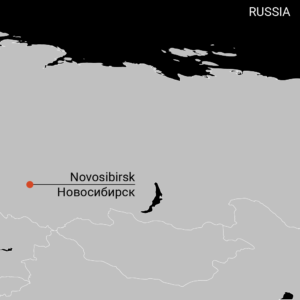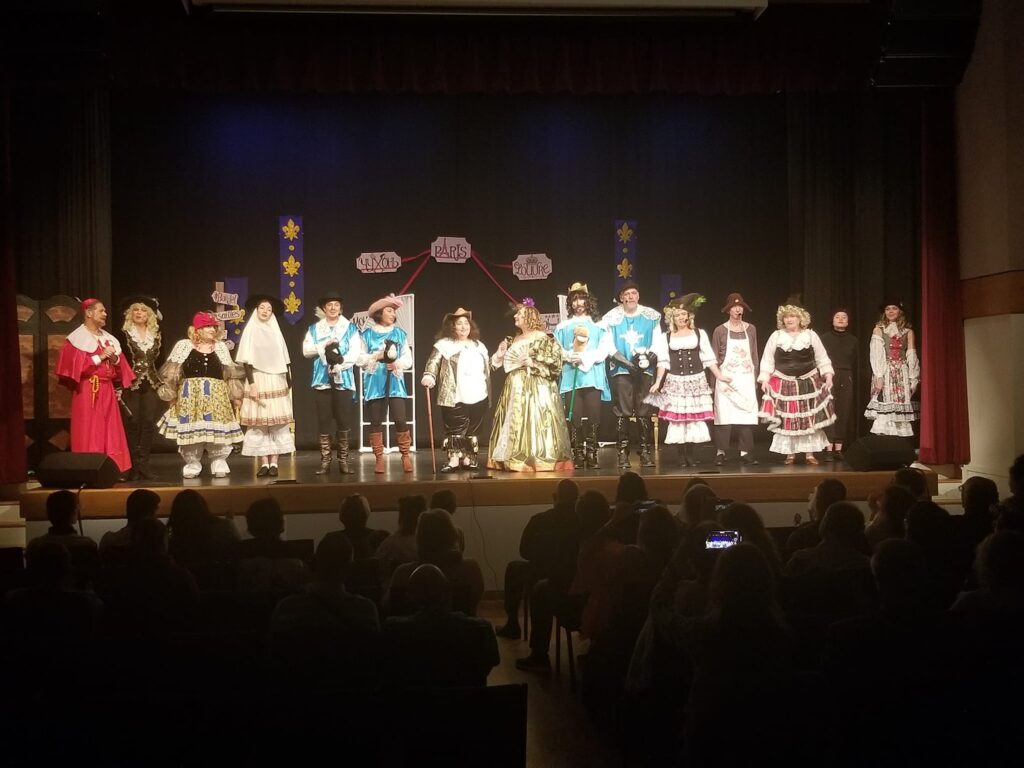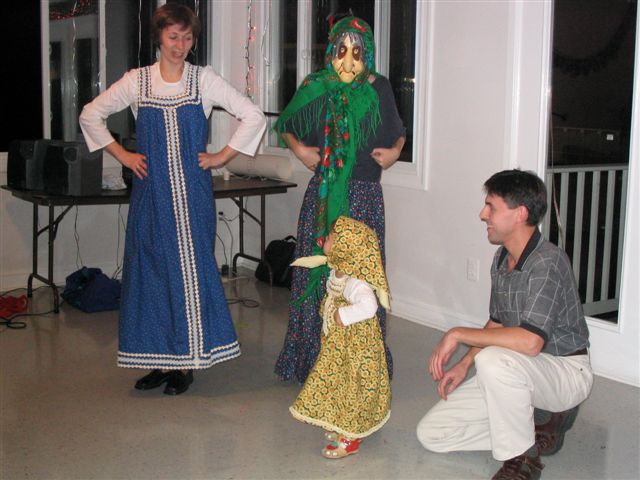Russian-speaking community, including Ukrainians, has burgeoned roots in Montgomery County, Maryland after the Cold War.

Russian and Ukrainian families filed into the Bender Jewish Cultural Center of Greater Washington on a recent evening. They had come to a rare performance since Russia invaded Ukraine: a play in Russian.
The center, located in Rockville, Maryland, regularly rented space to the large Russian-speaking community in Montgomery County for small events and Russian Sunday school. Larger-scale events and performances, however, haven’t run since February’s Russian invasion of Ukraine, Svetlana Potapova, one of the ushers in blue, said.
After the invasion, performances by Russian companies and Russian-speaking performers were canceled around the world.
“Some families stand with different parts of the war,” Potapova said in an interview with Capital News Service. “I’m Russian but completely on the Ukrainian side.”
Russian and Ukrainian families in Montgomery County, who have grown up together since the Cold War ended, avoid talk of the war for fear of dividing the community, said Zulfikor Nasymov, of the Ukrainian-owned European Delight market, whose customers are Ukrainian and Jewish Russian speakers.
“Here, [Russian and Ukrainians are] more like a big family,” Nasymov said, pointing to the burly Russian man outside his shop selling natural honey packaged from home.
Yet, the war and its impacts aren’t far from minds here. Gala Meyerovich, who lives in Montgomery County but immigrated from Russia in the 1990s, knows of a friend who was arrested for protesting the war and whose son hides in his Moscow apartment to evade the draft.
“He’s afraid that he will be noticed and captured,” she said. “He’s willing to go to prison for not going to the war.”
The Russian-speaking community in the Baltimore-Washington metropolitan area grew more visible after the dissolution of the Soviet Union in 1989, according to Jeanne Batalova, a senior policy analyst at the Migration Policy Institute.
Russian Jews fled state-sponsored religious persecution, followed by waves of Russian elites after the Bolshevik Revolution in 1917. Decades later, more Russians and citizens in neighboring countries fled to the United States amid Soviet persecution during World War II.
Immigrants ran grocery stores, Russian-language newspapers and Russian Orthodox churches. Gaithersburg’s Russian-speaking community also runs an adult daycare program for more than 100 elderly residents, nearly none of whom speak English.
Today, between 100,000 and 200,000 Russian speakers live in the Baltimore –Washington metropolitan area, according to a Russian-language news outlet RussianWashingtonBaltimore.com.

As immigrants watch the Russian–Ukrainian war, their connections to their home countries make issues beyond anti-war sentiments more sensitive.
Putin has long deemed Ukraine, which borders Russia, as an artificial, post-Cold War state and fears it will join NATO, the Western military alliance.
Since Putin began his presidency in 2000, between 1.6 and 2 million Russians have left the country, according to a 2019 report from the Atlantic Council.
The risks of protesting in Russia are high, with hundreds of Russian journalists detained for reporting on the war in Ukraine and a growing number of lawyers and Russian dissidents continuing to be killed or detained by Russian forces, according to a United Nations Human Rights Committee.
In 2015, Russian legislation also made protesting punishable by up to 5 years in prison. As a result, thousands of protesters have been arrested for speaking out against the draft introduced earlier this year.
Mass demonstrations also encounter great obstacles as organizers face criminal liability and general difficulty in coordinating protests. Frustrated Russians resort to individual action, like emigration, rather than collective, public action, said Vladimir Gelman, a Russian political scientist, in an article published in Meduza, a news outlet produced by Russian exiles based in Riga, Latvia.
Television personalities supporting the “special military operation” – the government-approved term for the war – on state-regulated talk shows further perpetuate the Russian version of events and stifle dissent, said Tatiana Satskaya, a friend of Gala Meyerovich who lives in St. Petersburg, Russia.
Many Russian civilians would rather stay quiet than risk discussing the war in public, Gala Meyerovich said. “Most likely, I would be silent,” she said. “Or, I would be supporting what was going on there… I am so glad I’m here and I do things differently.”
Mark Meyerovich, Gala Meyerovich’s husband, said Russians are taught that survival comes first and everyone is a potential enemy.
“We were always taught that it’s doomsday,” he said. “[Russian propaganda tells us] we’re forced to do this to keep our peace, to keep our country.”
The Meyerovichs both grew up in Novosibirsk, the largest city in Siberia, and remember life as living in survival mode. With nearly 1,900 kilometers to either of the country’s largest cities – Moscow and St. Petersburg – Siberians suffered supply shortages that required the rationing of everyday items such as butter, cheese, sugar, vodka, and soap.
“It’s like The Hunger Games,” Gala Meyerovich said. “Moscow and St. Petersburg were colors and lights and it’s beautiful, and in Novosibirsk [it] was like old gray.”

Meanwhile, with social media platforms like Instagram and Facebook banned in Russia, residents must rely on Virtual Private Networks (VPNs) to post or see the reality outside of Russia, according to Satskaya.
“That’s a pity, but you cannot compare it with what people in Donbas and Eastern Ukraine are going through,” Satskaya said in an email interview with Capital News Service.
Mark and Gala Meyerovich also worry about the impact of the war on young people.
“The next generations are damaged,” Mark Meyerovich said.
Both Russians and Ukrainians will probably “carry hate with them for a long time,” Gala Meyerovich added.
As 100,000 Ukrainians are expected to come to the United States under President Joe Biden’s Unite for Ukraine program, the makeup of the Russian-speaking population is poised to change.
Batalova said Russians fleeing the draft will face difficulty proving they have reason to fear state-sponsored prosecution. Some Russians and Ukrainians have already attempted to apply for asylum at the U.S.–Mexico border, according to Batalova.
If Russia pursues an aggressive war strategy, more Russians will likely flee, Batalova said.
“From there, Russians and Ukrainians fleeing that region will migrate first to neighboring countries and then the U.S., she said, “thus sending waves of change reverberating out of Russia.”

You must be logged in to post a comment.